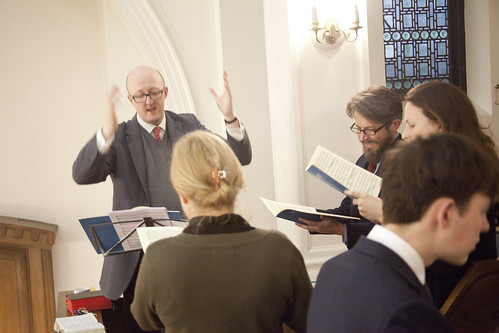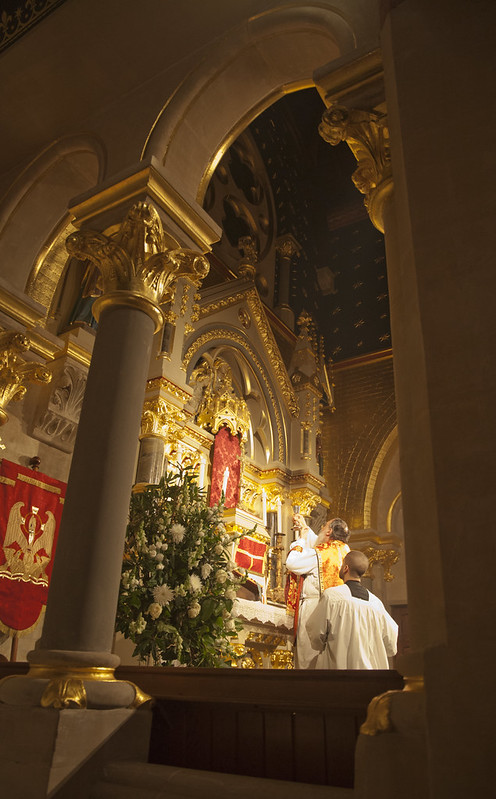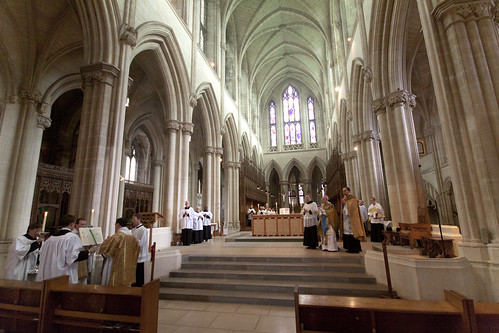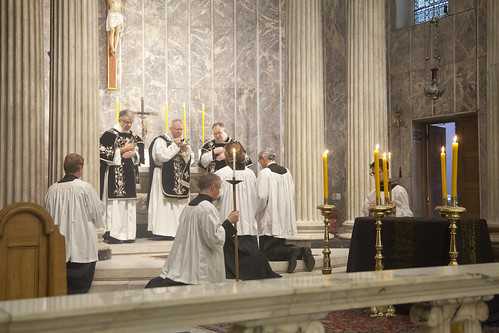
Labels
- Bishops
- Chant
- Children
- Clerical abuse
- Conservative critics of the EF
- Correctio Filialis
- FIUV Position Papers
- Fashion
- Freemasonry
- Historical and Liturgical Issues
- Islam
- Liberal critics of the EF
- Marriage & Divorce
- Masculinity
- New Age
- Patriarchy
- Pilgrimages
- Pope Francis
- Pro-Life
- Reform of the Reform
- Young people
Wednesday, September 30, 2020
Sir James MacMillan becomes Patron of London-based choir Cantus Magnus

Wednesday, September 23, 2020
Support Sacred Music in London and Offer Masses for Your Loved Ones

Tuesday, September 22, 2020
In Defence of Primary Educators: a protest against Sex Ed in Catholic schools
Below is a piece I've written for LifeSite on the campaign against Sex Education in Catholic schools. Our Coalition in Defence of Primary Educators now has a website, and with LifeSite we have created the following video.
Last week,
on the Feast of the Holy Name of Mary, I knelt with two others in front of Westminster Cathedral,
the magnificent Byzantine-style mother-church of the premier diocese of England
and Wales, and the seat of Britain’s only Cardinal, Vincent Nichols. We prayed
the Rosary together for our bishops. We had already written to them: we, and
supporters or our three organisations, which have come together for this
cause—the Society for the Protection of Unborn Children, Catholic Man UK, and the Latin Mass Society, of which I am the Chairman—and we received formulaic
responses from most of them, telling us that everything will be fine.
But it is already not fine, and we can all read for ourselves the legislation and official guidance which will before long be enforced on schools under our bishops’ authority, which will make things even less fine. For this legislation is imposing a program of “Personal, Health, and Sex Education” (PHSE) which demands that choosing not to kill the child in the womb is just one acceptable option among others, and that Christian marriage is just one life-style choice alongside same-sex unions, and every other possibility. We know from the lesson-plans, produced not only by the Government but by the Bishops’ own agency, the Catholic Education Service, that children in schools claiming to be Catholic and funded in part by Catholic offertory collections are already bullying, browbeating, and shaming children who dare to give voice to their instinctive regard for natural marriage. This approach will be rolled out and enforced with greater and greater rigor when the new legislation comes into force next year, after a delay caused by the Coronavirus.
Monday, September 21, 2020
Schellhorn Prize for sacred music composition

Classical pianist Matthew Schellhorn founded the prize in 2014 in memory of his parents to foster artistic endeavour and encourage excellence in the Sacred Liturgy. The inaugural Prize was awarded in 2015 and was won by Marco Galvani.
The Schellhorn Prize for Sacred Music Composition competition is announced for 2020 and will be held in December with the winning entry performed on Christmas Eve.
The panel of judges for the 2020 Prize will include:
Mr Matthew Schellhorn (Chairman)
Diana Burrell (composer)
Marco Galvani (composer; Yehudi Menuhiin School)
Dr Peter Kwasniewski (composer)
Professor Nicola Lefanu (composer)
Mr Andrew Morris (Pastmaster, Worshipful Company of Musicians)
Mr Tim Watts (composer; Affiliated Lecturer, Faculty of Music, University of Cambridge & Sub-Director of Studies in Music and Teaching Associate, St John’s College, Cambridge)
The Schellhorn Prize for Sacred Music Composition is supported by The Latin Mass Society of England and Wales.
Wednesday, September 16, 2020
Westminster Cathedral Choir is in peril
 |
| Westminster Cathedral: the LMS Annual Requiem |
The saga of Westminster Cathedral Choir School claimed a fresh victim last week with the resignation of another senior employee, the Music Administrator Madeleine Smith. Like the Director of Music, Martin Baker, she was unhappy about the sidelining of the choir at England’s premier Catholic Cathedral. Baker resigned late last year, and was absent from Christmas services. There was no official explanation, and he has not been replaced. What is going on?
Westminster Cathedral Choir is served by men and boys, in the ancient Catholic tradition. The boys attend a school set up specially for them by Cardinal Vaughan, the founder of the Cathedral, in 1902. He wanted to have something in his new Cathedral equivalent to the great choirs of the Anglican Cathedrals, which commonly have their own schools—boarding schools—so the boys can be recruited from a wide area and are available to sing on Sundays. Vaughan’s vision was realized, and Westminster Cathedral Choir is famous. It is, or was until recently, at least as good as the best Anglican Cathedral choirs, such as those of Westminster Abbey and St Paul’s, and in the context of the global melt-down of Catholic sacred music since the 1960s, it was regarded as the best Catholic Cathedral choir in the world. Westminster Cathedral was the only Catholic Cathedral in the world to have a Sung Mass every single day: again, until recently.
Monday, September 14, 2020
Support this Angelico Press project: the Vulnerary of Christ
| ||||||||||
|
Saturday, September 12, 2020
What are the defenders of 'Cuties' really saying?
My latest on LifeSite. A highlight:
I’m not going to review Cuties because I’ve not watched it, and I have no intention of doing so. What I can comment on is the reaction to it, particularly those of people defending it. One might expect defenders of the series to claim that it does not endorse what it depicts — sexualized dancing by underage girls — and they do say this, up to a point. But actually, they do want to endorse it. Here is the New York Times reviewer, Richard Brody:
The subject of “Cuties” isn’t twerking; it’s children, especially poor and nonwhite children, who are deprived of the resources — the education, the emotional support, the open family discussion — to put sexualized media and pop culture into perspective.
What does this story tell us, exactly? Brody patiently explains that in the oppressive, patriarchal society these girls are supposedly part of, despite their complete lack of supervision or effective moral formation, their adoption of sexualized dancing is a way of rebelling and establishing their own identities. So it’s actually good. But it’s also bad, because they are doing it only because they lack resources and education, and are oppressed.
Friday, September 11, 2020
More about Downside
In 1993, a Benedictine monastery, Fort Augustus Abbey in Scotland closed the school that had been its major work since its foundation in 1880, though latterly plagued by allegations of child abuse. In 1998, citing the high cost of maintaining the monastic buildings, the community itself was dissolved, its members dispersing to other monastic communities.
A similar process is now taking place with another Benedictine community, Downside Abbey in England. In 2019, the community was legally separated from the school which had existed alongside the monastic community since 1617, at that time an English Catholic institution in exile on the Continent. School and monastery have shared the current site in southwest England since 1814. But now it has been announced that the monks will be leaving: exactly when and to where has yet to be determined. The monastic buildings were designed for fifty monks, and the community is down to eight, with little prospect of new members. It is expensive to maintain, and co-existing on the same site as a school they no longer run is awkward. It is time, apparently, to move on.
The problems these institutions have had with vocations and with their schools are distinct, though entangled. Britain’s fee-paying boarding schools have had a difficult time in recent years, but many continue to flourish. It seems that they will do so without such a strong contingent of Catholic monastic schools among them as in the past. The more fundamental problem for these and many other communities has been the lack of vocations.
Thursday, September 10, 2020
Downside: Open Letter from Fr Christopher Basden
OPEN LETTER OF APPEAL TO DOWNSIDE
On behalf of untold people throughout the world I write to appeal against the monks of Downside surrendering to the current zeitgeist and leaving their monastery. Downside is part of the fabric of English Catholic history. The restoration of the Catholic Church and of monasticism is one of the great victories of Grace after the horrendous rape and interruption by Henry VIII in the 16th Century. We appeal against this decision in the face of a more insidious enemy: that of secularism, relativism and modernism which destroys the Church from within.
Surrendering does not solve the problem. We have faced enemies before and a flight or dispersal to another location(s) is simply the recipe for swift extinction as we have seen previously (Fort Augustus and countless female communities). Have we no faith in the grace of God and the irresistible attraction to the consecrated life and the eternal truth of the Catholic Church?
More about Obedience
Readers may be surprised, or scandalized, that Catholics like myself critical of bishops who appear to be pushing the practice of Communion in the hand during the COVID-19 epidemic are minimizing the importance of the virtue of obedience. So having criticized one view of what obedience is about, I’d like to say something positive about obedience.
Obedience is indeed a wonderful virtue. We should not see it as a passive or effeminate virtue, but as a primary virtue of the soldier. Christians are, after all, soldiers of Christ, and it is the constant theme of traditional Catholic spirituality that we should overcome our self-will in order to conform ourselves to the will of God. This, after all, is what the love of God is: “If you love Me, obey my commandments” (John 14:15). Furthermore, our religious superiors exercise over us God’s authority, and for most of us our opportunity to obey God in specific matters comes in the form of obeying God in our superiors.
The difficulty modern Catholics have had with obedience is partly the result of spiritual writers of recent centuries taking it too much for granted that they are not talking about obeying our superiors in matters of sin, or about “rash” obedience when what we are commanded might be sin; nor about matters that go beyond our superiors’ competence, or about commands that fail to promote the common good.
Wednesday, September 09, 2020
Obedience and Holy Communion
 |
| Holy Communion in happier times. LMS Holywell Pilgrimage 2014. |
Every time I go to Mass it is hard for me to receive in the hand.
Every time I go to Mass, I have to say consciously, “He is the bishop, and you’re not, Flynn.”
That’s been an incredible source of grace. Obedience has been more fruitful for me than any devotion could be.
Mr. Flynn’s argument here is that his reception of Holy Communion in the hand is an exercise of the virtue of obedience, and therefore a source of graces. This is problematic for a number of reasons.
Most obviously, no bishop’s guidelines say that Catholics are obliged to receive at all. Catholics are, in normal times, obliged to receive Holy Communion once a year. Frequent reception of Holy Communion is recommended by the Church for Catholics in a state of grace, but here and now other factors are in play. Some Catholics in this situation have chosen not to receive at all for this period of time. Others have found priests, perhaps on the other side of diocesan boundaries, willing to distribute on the tongue, which of course is perfectly legal.
Read the whole thing.
Friday, September 04, 2020
Downside Abbey to be abandoned: letter of the week
 |
| The mighty Abbey Church at Downside, where Bishop Schneider celebrated the EF for the Latin Mass Society's Priest Training Conference in 2010. |
Wednesday, September 02, 2020
Interview in The Remnant
 |
| High Mass of Requiem for Colin Mawby, Patron of the Latin Mass Society, in St Mary Moorfield, shortly before the Coronavirus epidemic. |
Q. Isn't the intellectual conception behind this dedication to the Tridentine Mass just another form of "antiquarianism"?
Joseph Shaw: ...The question can be approached from a subjective or an objective perspective. Subjectively, it is legitimate to ask what forms of liturgy and what devotions are most helpful to souls. Some may be of particular benefit to some Catholics, and others to others. Some like the Divine Office, or the Chaplet of the Seven Sorrows of Our Lady, but they are not compulsory, and to say one legitimate devotion or liturgical form is outdated or inappropriate for the current year is ridiculous. If it has been approved the Church, and someone finds it helpful, that is all that needs to be said.
...



